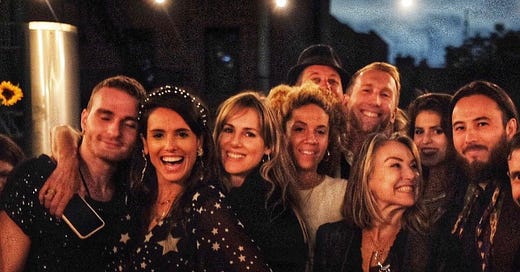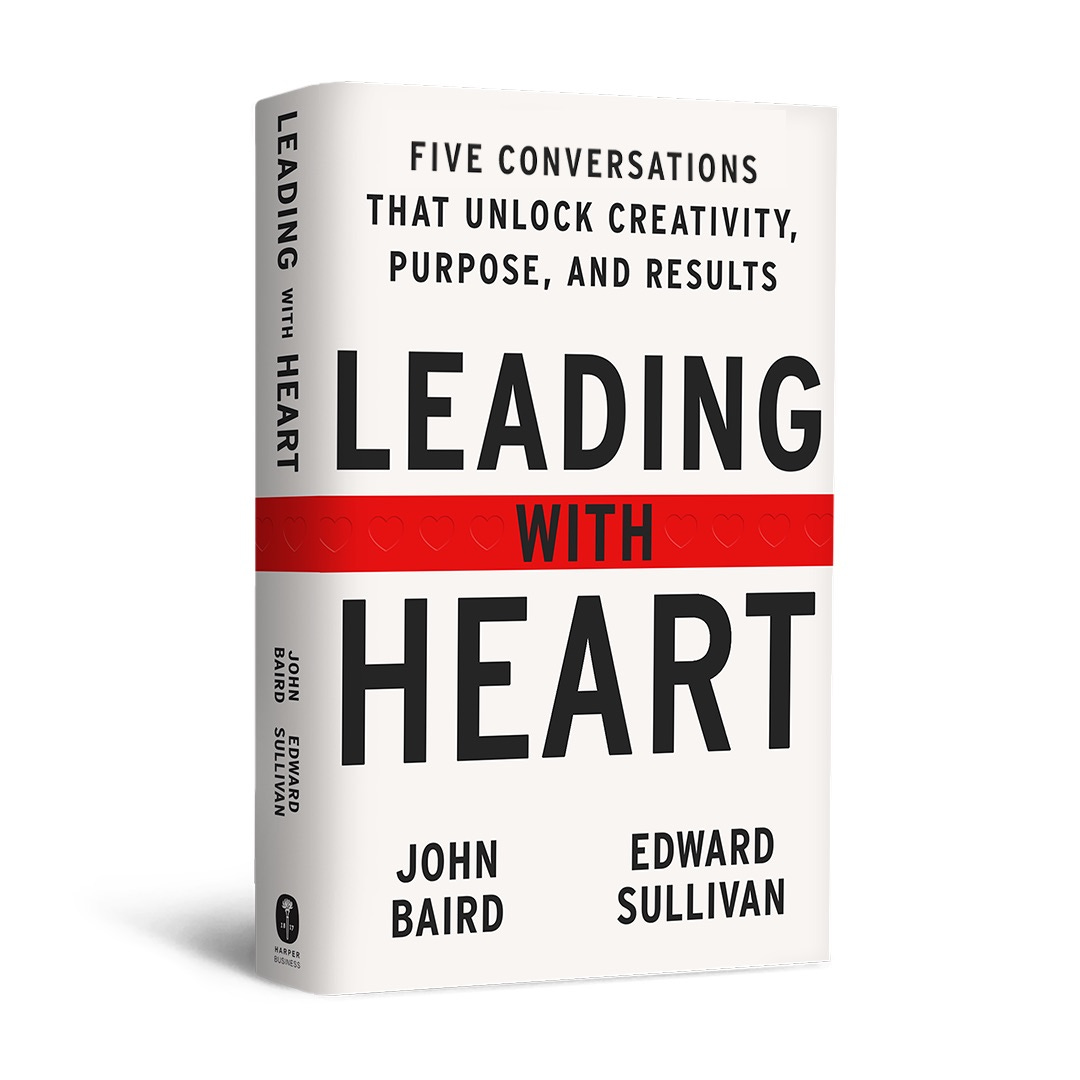You might not personally know my friend Edward Sullivan, but chances are you’ve enjoyed his spectacular talents.
For the last 20 years, he’s helped some of the most influential minds in business and politics lead with their hearts. As the CEO and Managing Partner of Velocity Coaching, an executive coaching firm, he’s been an advisor to some of your favorite start-up founders, Fortune 500 executives, and public servants. I remember hanging out with Edward once talking about how much I loved my new socks from this cool new company called Bombas that donates socks to homeless shelters, and asking if he had ever heard of it, to which he responded “I just came back from their office, Liz.” Of course Edward had been already helping them because they were doing game-changing work!
For the last two years I’ve watched Edward pour his entire soul into his first book Leading with Heart: Five Conversations That Unlock Creativity, Purpose, and Results by which he co-wrote with his business partner John Baird. It lays out a very different version of leadership, one that’s focussed on empathy rather than productivity. I love their approach because it’s a much more genderless take on what a leader looks like. I think a lot of women and marginalized folks don’t become leaders because they think they don’t have what it takes, when in reality it’s the fact that they are different that makes them extraordinary at leading. I will not bore you with statistics about how much non-white people and women excel in positions of leadership because I know that you don’t need to be convinced.
Whenever I’ve talked to Edward about a conflict I’m having with a colleague or collaborator at work, he’ll help me refocus on needs rather than goals. This except from his book puts is perfectly.
“When a houseplant wilts, we don’t yell at it, offer it more money, or put it on a performance improvement plan,” they write. “We give it more water, move it closer to the sun, and make sure it’s getting the nutrients it needs until the leaves perk up and regain their color.
The same goes for us as people. Leading with heart is hard work. It takes a lot of energy to be courageous, curious, and vulnerable—to have the tough conversations. For this reason, we need to be very mindful that we are getting our physical, emotional, and environmental needs met, lest we descend into unproductive behavior.
When faced with difficulty with a colleague, instead of playing the blame game, what if we got curious to see if each of us was getting our needs met? What if we asked ourselves on a regular basis what we and our teams really need to succeed? To thrive?”
I’ve written down so much of the advice Edward has given me with greasy fingers in my notes app over fries, so I figured I would share his wisdom with you too. He loves our community and what this newsletter stands for and volunteered to answer a few questions about his new book. If you’re looking to lead a bigger life and really step into your power I highly recommend you get your paws on it!
Liz Plank: What's the biggest misconception about leadership and how does it limit who sees themselves as a leader?
Edward Sullivan:The biggest mistake leaders make is they think they need to be perfect. That they can't show any flaws. The scourge of "executive presence" has made people feel paranoid--like they can't be themselves. And when leaders feel they need to be perfect, so will their employees. Suddenly we have entire organizations of people who are spending half their energy faking it. What would be different if leaders showed up as their flawed selves who didn't have to have all the answers? We could all just relax and get to work, that's what.
Liz Plank: In your book you distinguish between desires that "drive you" and the ones that "derail you." Can you tell us the difference and how to make sure we are letting the right ones lead?
Edward Sullivan: Interestingly, the same desires that drive us, can also be the ones that derail us. Our desire to win can make us strive for excellence; it can also make us overly competitive or unscrupulous. The key for leaders is to help their teams discern how much is healthy, and how much is too much. Which is why having open conversations about what really drives us is so important. When we put it all on the table we can hold each other accountable, and keep those derailing desires in check.
Liz Plank: In your book, you talk about a term I've never heard about before called blindsets. You define them as default settings that prevent us from seeing ourselves and others clearly. What's an example of blindsets and how can we become more aware of them?
Edward Sullivan: We discovered four "blindsets" in our research and work with leaders over the years: fantasy, denial, paranoia, and skepticism. If you imagine them on a two-by-two matrix, each one describes a state of "blindness" that occurs when a leader is overly optimistic or over pessimistic, and is either seeing things that aren't true, or not seeing things that are true. All of the blindsets are perilous, but the most common one we see in working with startup founders is fantasy--they are overly optimistic and seeing things that aren't there. While every founder has to be a little overly optimistic to do something as risky as start a company, they become blinded by fantasy when they see market opportunities where none exist or when they become over-confident in their abilities to overcome insurmountable odds. Like Don Quixote tilting at windmills, the fantasy-blinded founder will eventually face harsh realities and often at a great cost to the team and their investors.
Liz Plank: You also write that one of the most common mistakes that people make is to discount the value of our own gifts. What's a good exercise for our readers to find out what their core gifts are?
Edward Sullivan:The best way to uncover what your gifts are is to ask friends and colleagues what you are good at. We often see ourselves through a critical lens and discount the value of the subtle yet powerful gifts we have. Our friends and colleagues can often see us more clearly than we see ourselves. They will reflect back often with great clarity they ways we impact them and others. Our challenge then is learning to take that feedback in and believe it.







he’s the best!!
Thank you for introducing me to your friend Edward. I go into companies and teach their leaders mindful communication practices, so I’m sure I’ll benefit greatly from his book. More wonderful research I’ll be able to reference 🤓